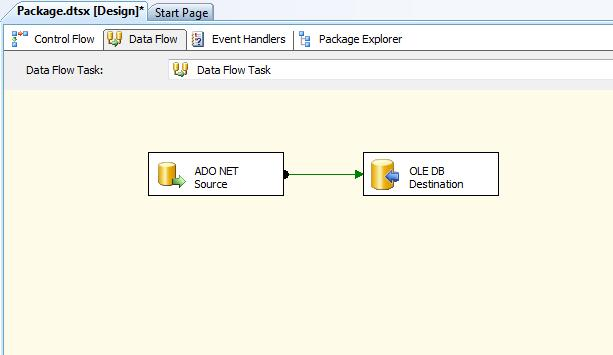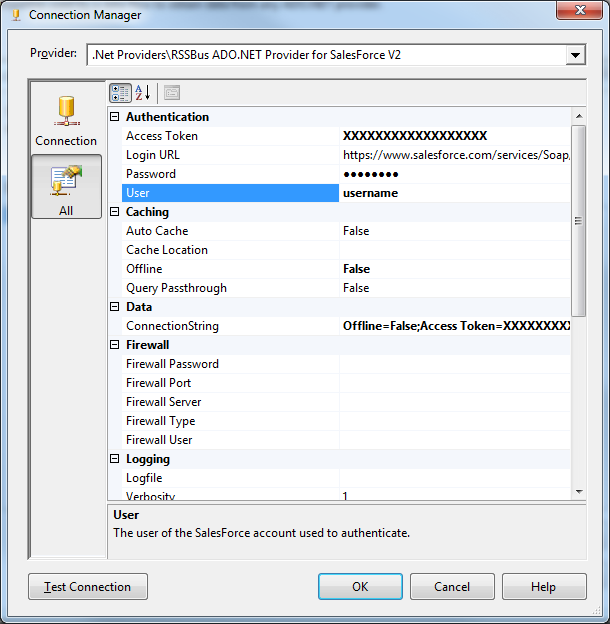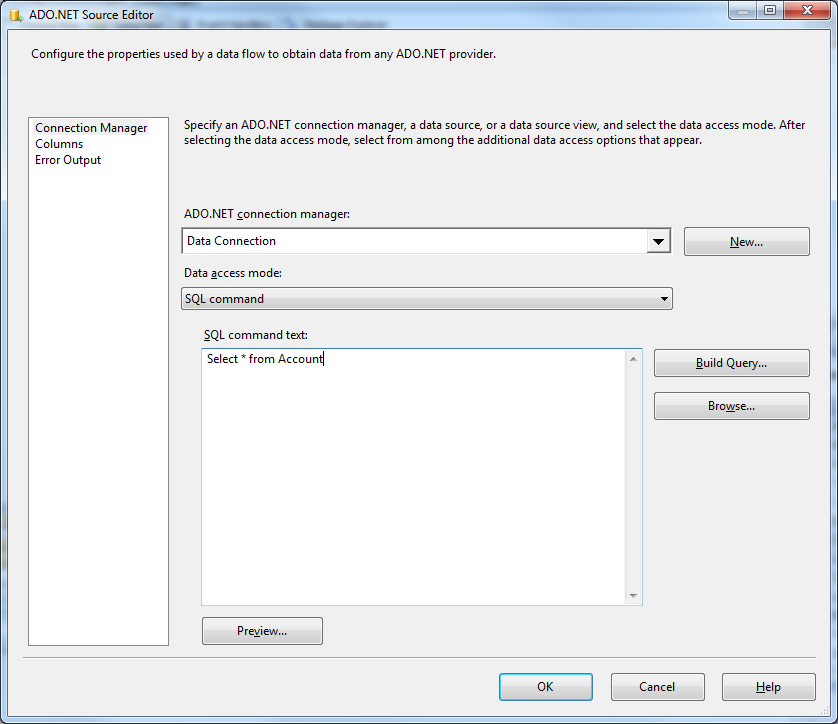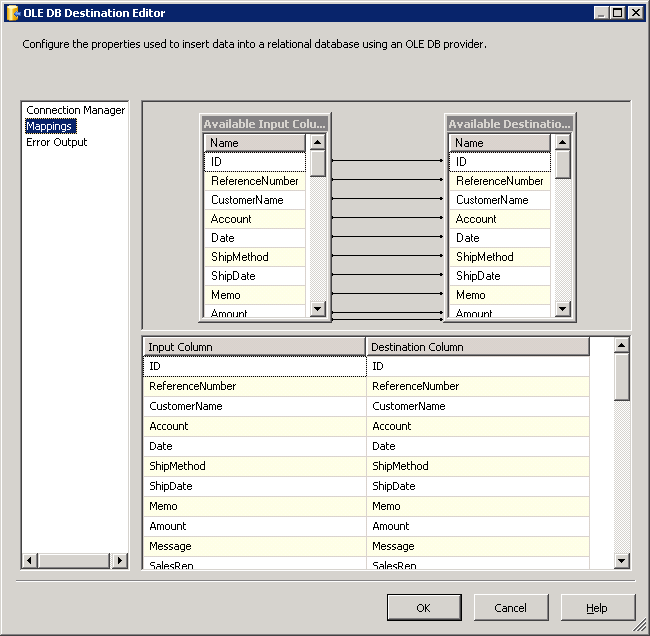Discover how a bimodal integration strategy can address the major data management challenges facing your organization today.
Get the Report →Back Up MailChimp data to SQL Server through SSIS
Effortlessly backup data to SQL Server by utilizing the CData ADO.NET Provider for MailChimp. In this article, we will employ an SSIS workflow to populate a database with MailChimp data data.
This article illustrates using the MailChimp ADO.NET Data Provider within a SQL Server SSIS workflow for the direct transfer of MailChimp data to a Microsoft SQL Server database. It's worth noting that the identical process detailed below is applicable to any CData ADO.NET Data Providers, enabling the direct connection of SQL Server with remote data through SSIS.
- Open Visual Studio and create a new Integration Services project.
- Add a new Data Flow task from the toolbox onto the Control Flow screen.
In the Data Flow screen, add an ADO.NET Source and an OLE DB Destination from the toolbox.
![The components used in the data task in this example.]()
- Add a new connection and select .NET Providers\CData ADO.NET Provider for MailChimp.
In the connection manager, enter the connection details for MailChimp data.
You can set the APIKey to the key you generate in your account settings, or, instead of providing your APIKey, you can use the OAuth standard to authenticate the application. OAuth can be used to enable other users to access their own data. To authenticate using OAuth, you will need to obtain the OAuthClientId, OAuthClientSecret, and CallbackURL by registering an app with MailChimp.
See the "Getting Started" chapter in the help documentation for a guide to using OAuth.
![Connection properties in the Connection Manager dialog. (Salesforce is shown.)]()
Open the DataReader editor and set the following information:
- ADO.NET connection manager: In the Connection Managers menu, select the Data Connection you just created.
- Data access mode: Select 'SQL command'.
- SQL command text: In the DataReader Source editor, open the Component Properties tab and enter a SELECT command, such as the one below:
SELECT Name, Stats_AvgSubRate FROM Lists
![The connection and query specified in the source component properties. (Salesforce is shown.)]()
- Close the DataReader editor and drag the arrow below the DataReader Source to connect it to the OLE DB Destination.
Open the OLE DB Destination and enter the following information in the Destination Component Editor.
- Connection manager: Add a new connection. Enter your server and database information here. In this example, SQLExpress is running on a separate machine.
- Data access mode: Set your data access mode to "table or view" and select the table or view to populate in your database.
Configure any properties you wish on the Mappings screen.
![Input and destination columns in the OLE DB Destination Editor.]()
- Close the OLE DB Destination Editor and run the project. After the SSIS task has finished executing, your database will be populated with data obtained from MailChimp data.










